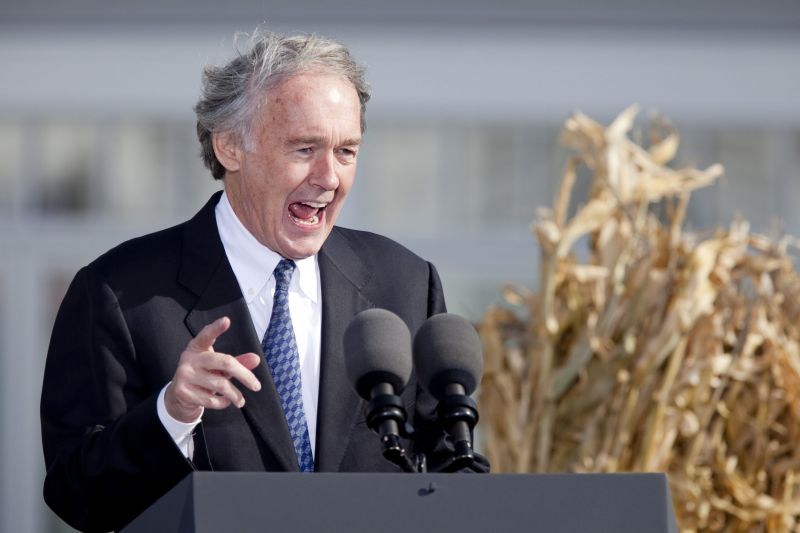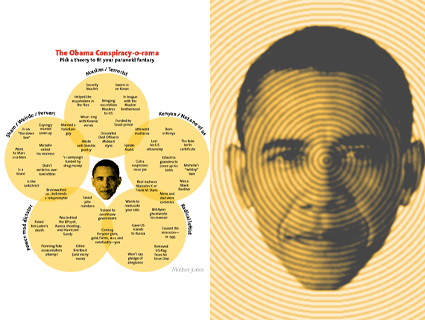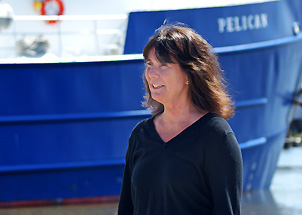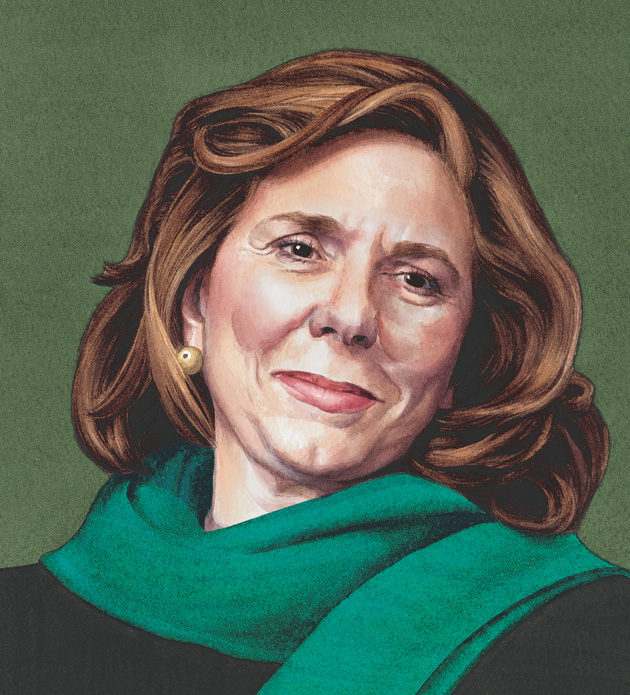
Illustration: Ruth Marten
Teresa Heinz Kerry was dreading the presidential campaign. She hates the notion of being “handled”—”I’m too old to be bossed around,” she may say, sharply, to an aide shepherding her around backstage. She misses her work, her grandchild, time alone with her husband. She balks at surrendering her name—”Mrs. Heinz,” as she is known and respected in a professional identity she forged from tragedy late in life. Mrs. Heinz Kerry, as she now tries to remember to call herself, has real concern about her husband winning the White House. She worries, a senior adviser admits, that she will “lose herself.”
That thought comes to mind, watching Heinz Kerry as she is dragged onstage and positioned behind the candidate, like a prop. She tosses her long freestyle hair and rakes her fingers through it, shifts her weight in her Chanel boots, and adjusts her scarf while he spouts the campaign slogans she has heard countless times. Yes, she has been a good soldier; John Kerry’s campaign manager has called her the “unsung heroine” of the primaries, for working New Hampshire while he went for broke in Iowa. She will go wherever his schedulers tell her to go, usually at the last minute.
Yet there is something held back about her, something uncomfortable, an I’d-rather-be-almost-anywhere-else disdain for the moneygrubbing, ass-kissing, bromide-mouthing ritual that American presidential candidates must endure. She will stand awkwardly on a riser behind her orating husband, fussing with her buttons, twisting her rings, sometimes “looking dour,” as her son Chris admits.
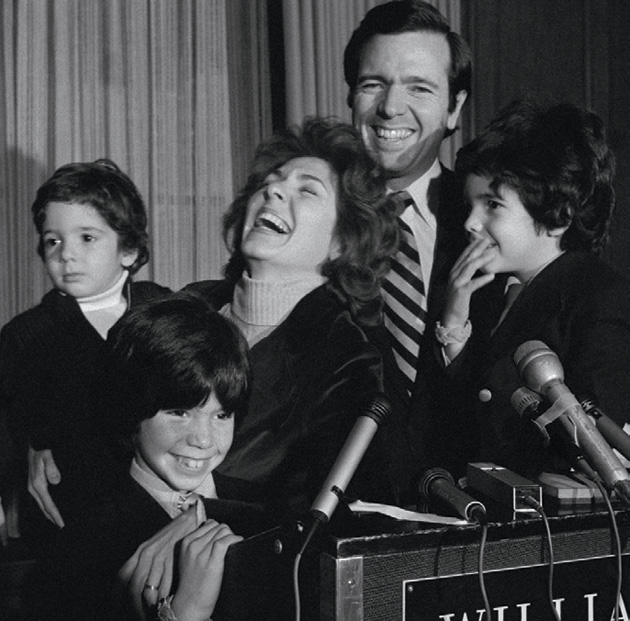
“She’s thinking,” insists her chief of staff, Jeffrey Lewis, a Republican lawyer with a shaved head who hovers never more than 10 feet from Heinz Kerry, four communication devices clipped to his belt. In between campaign events, he locks heads with his boss on her Gulfstream jet to discuss the fine points of policy initiatives funded by her foundation. “We’ll work 20-hour days on the road,” he says.
“Mrs. Heinz” is powerful in her own sphere, arguably as powerful as many Washington politicians: As chief of the Heinz family of foundations, she sits astride a treasury of 1.3 billion in charitable dollars—one of the nation’s largest private philanthropic networks, guided by an ambitious agenda for social change that is largely of her making. She even has her own think tank.
But she has never had to defend her work in the political arena—until now. Right-wing radio hosts and conservative activists have been raising questions over whether her philanthropic work represents a conflict of interest for a potential first lady. A research group funded by Richard Mellon Scaife, the archconservative billionaire who bankrolled the campaign to bring down the Clinton presidency, charges that some grant money from the foundations may have ended up in the hands of groups espousing “extremist” policies and tactics, such as Greenpeace.
“I don’t fund policies!” Heinz Kerry sputtered in an interview, the day before the claims were mentioned in a New York Times article. “I talk to leaders when they’re interested in our blueprints. I don’t push,” she insisted with rising anger. “I don’t push! I’ve testified once in my life before the U.S. House, and once in the Pennsylvania House. I personally don’t push.”
Heinz Kerry’s portrayal of herself as a nonpartisan visionary is at odds with the reality of her strong views and her outspokenness in defending them. Her foundations have developed policy proposals on issues such as health care, early childhood education, biodiversity, and pension reform; she herself oversees the process of promoting these “big think” ideas, which can involve everything from placing op-eds in newspapers to pitching ideas to elected officials.
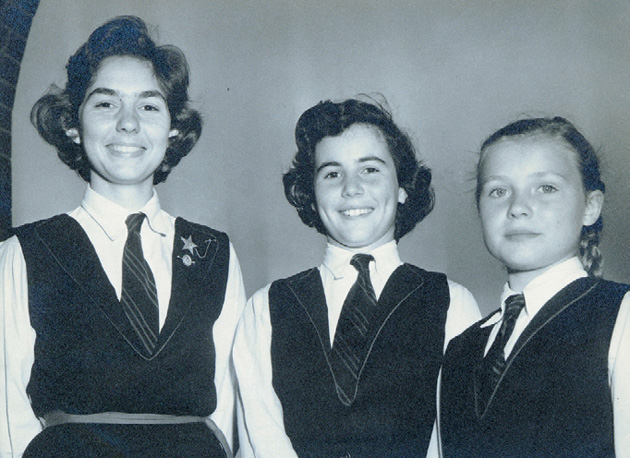
It is not the only contradiction in her public persona. A woman who owns five homes and a private plane (which she bought secondhand), she stumps on behalf of her husband’s platform to reverse Bush’s “economy of privilege.” She chastises the White House for lacking transparency yet has balked at demands that she release her personal tax returns. She doesn’t believe the role of first lady would be “life changing,” and she argues that there is no legal or ethical reason why she couldn’t continue running her foundations from the East Wing of the White House. If her first husband, the late Senator John Heinz, “could be chairman of a foundation while he had immediate political interests, I don’t know why I can’t go on doing what I’m doing.”
Washington insiders dismiss that as wishful thinking. “What happens if she wants to fund something at odds with the administration’s position?” says Paul Costello, a former aide to Rosalynn Carter and Kitty Dukakis. “The conflict of interest could be tremendous. You can’t wear two hats. At some point she will say, ‘It’s not worth it.'”
Yet the idea of giving up her work is intolerable to Heinz Kerry. She takes offense when the media refer to what she does as “causes,” which she says they wouldn’t with a man of similar stature. “They’re not causes—they’re serious matters in the world. It takes full time. I work six days a week.”
Life in the White House was never her passion. This is a woman who told her first senator husband that he could run for president only “over my dead body.” She was even more resistant, “terrified,” in her words, this time around—terrified because now she had more to lose. She told Barbara Walters that when she first learned about Kerry’s presidential ambitions, she took a walk in the woods, “contemplating where I am in life, and I said, ‘If we get there, then I just have a higher platform from which to share the work that I do already.'” She is confident that if she’d said no, he wouldn’t have run.
“Trust me, I didn’t persuade her,” John Kerry told me. “She makes up her own mind.”
Some Democratic partisans have criticized Heinz Kerry, a near-lifelong Republican, for not registering as a Democrat until 2003, eight years after her marriage to Kerry. But, says a senior adviser, “keeping her name and her party registration was very much part of her identity. As much as she was happy to be in love again, she didn’t want to become known as just another senator’s wife. There was a fierceness in her—as if to say, ‘I earned this status the hard way, and I’m keeping it.'”
Indeed, when Heinz Kerry insists that her work “has nothing to do with John—absolutely nothing,” her voice conveys the urgency of a 65-year-old woman who was transformed in her 50s from wife and mother into independent professional. It betrays the tension between her passion for her work and her commitment to being a supportive spouse—the natural fear of losing the status she has earned, of being turned into “just a wife,” in her adviser’s words, and, ultimately, a presidential appendage. Teresa Heinz had a life of her own for 56 years before she married John Kerry, and she isn’t about to corset her frankness or give up one whit of her hard-won identity to suit the stereotype of a candidate’s wife. “It’s the only way one can live in one’s own skin,” she says.
The transformation of Teresa Heinz began with a phone call to her Washington townhouse on April 4, 1991. A small chartered plane had collided with a helicopter in Pennsylvania. The flaming wreckage had fallen onto a schoolyard, killing two children, all the pilots, and Senator John Heinz. She was 52. The thought of losing her husband had never entered her mind.
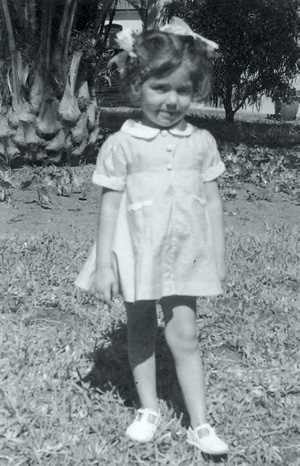
Born the daughter of a Portuguese doctor in Mozambique, Maria Teresa Thierstein Simoes-Ferreira had met H. John Heinz III in 1962 at the University of Geneva, where her classmates included a young Ghanaian named Kofi Annan. One of the most coveted bachelors of the period, the heir to the Pittsburgh-based Heinz ketchup and pickle fortune had been fixed up with her roommate. But that was history once he saw Teresa. Knockout beautiful, fluent in five languages, she was a girl who, as she puts it now, had “no ambition. I thought of myself as being married and having children, which is what all the ladies did.” Her concept of the United States had come from the movie Some Like It Hot, with a scantily clad Marilyn Monroe and Tony Curtis in drag racing through a train. She laughs: “I thought, ‘These people are fun!'”
Pittsburgh was nothing like the movie. A gritty, blue-collar town with a deep social and racial divide, it challenged the émigré’s idealized view of America. Robin Duke, a former U.S. ambassador to Norway, knew the Heinz family from the days when she dated Teresa’s father-in-law. “Enfolding Teresa into the Heinz family was not an easy thing,” she says. “People said, ‘Mozambique, where’s that?’ Teresa has a feisty quality, and coming up against that insularity of wealthy, small-city Americans probably only enhanced her feistiness.”
“Teresa was kind of exotic,” says Peggy Stevens, a Pittsburgh socialite and activist. “She didn’t fit the mold of people who wore pink and green and went to the Rolling Rock country club.” Stevens learned that Teresa, who lived outside of town on the 90-acre Heinz estate, was shy and socially isolated. She befriended her, and Teresa threw herself into raising funds for Shady Lane, an integrated preschool—a controversial idea in 1966. “Black militancy was beginning and we had children of black activists” at the school, recalls Stevens. “This was the world Teresa wanted her children to grow up in.”
Teresa focused intensely on raising her three sons. “She loved having babies,” says her spokeswoman, Chris Black. “If she hadn’t had a couple of miscarriages, she would have had more.” One pregnancy was so compromised that her doctor advised an abortion, but a miscarriage rendered the choice moot. Teresa became known by her children’s friends as “Mama T,” a broad-minded mother who treated kids like adults. She would invite 8- to 14-year-olds to a tea party and introduce them to the health benefits of herbal tea—way before “natural” became a movement.
She hosted dinner parties for her husband’s influential friends—the “Pickle Mafia,” as they would call themselves when they convened to support John Heinz’s first run for Congress in 1971. “I was always enchanted, growing up, by the dinner table conversation at the Heinz house,” says Alison Byers, Teresa’s goddaughter. “It would careen around the world from the plight of women in Afghanistan to the plight of the Washington Redskins.”
When the family moved to Washington following Heinz’s election to the House in 1971 (he was elected to the Senate in 1976), Teresa was perceived as a nice society lady with brains and a conscience. She joined a group called Congressional Wives for Soviet Jewry. “She was a relatively passive political spouse,” says Stevens, “although she always had strong opinions.” The Heinzes’ lives were full and private, despite the senator’s high profile as a rising GOP star. Then, with that April 4 phone call, all of it was gone.
Services were hardly over before the lawyers arrived and the widow Heinz began a frenzy of learning how to manage a vast fortune. She was left close to $500 million—”my pile,” she calls it. The media continue to use that figure as her current personal worth, though with earnings and interest, the “pile” is likely to have grown substantially larger. Her friends say they have no idea how much she is worth today.
She knew nothing about managing money, she says. She set up 10 family trusts, some to provide for her three sons, with portfolios screened to exclude polluting companies, tobacco interests, and other political no-no’s on her list. (It is the details on these trusts that she says she is seeking to protect in refusing to release her full tax returns.)
How long did it take for her to embrace a new identity as a virtual CEO? “A week,” she says matter-of-factly. “I was faced with so many huge decisions, so much responsibility, in the family, fiduciary, organizationally. My learning curve exploded.”
Because Heinz had no siblings, it fell to Teresa to assume responsibility for his vast philanthropic legacy—three separate foundations bearing the names of several generations of the Heinz family. She had attended only a couple of meetings at the endowments’ offices and was not on any of their boards. “There had been several decades of inattention,” says Wren Wirth, then a fellow Senate spouse and one of Teresa’s best friends. “To do the big-think stuff, really trying to create social change and introduce modern thinking, Teresa had to dig in.”
Teresa’s forced transformation is a source of pride—a somewhat defensive pride common to the generation of women who came of age just before the ’60s. “I remained the same person,” she says, “but my identity changed. It was tough on the kids, tough on me, but that was something I needed to do.”
In the first month, she hired Lewis, a Republican policy wonk who had worked for her husband, and began peppering him with questions on issues from Medicaid to trade policy. She began setting a new strategic direction: Before she gave away a nickel, grantees had to explain how they would use the money and demonstrate that they could change a community. Civic institutions such as the Pittsburgh Symphony had been used to an ask-and-you-shall-receive patronage from the Heinz family; now they were told to present a business plan. Teresa Heinz was shaping herself into what she called a “venture philanthropist,” dedicated to shaking up the world of charitable giving.
It was a surprisingly good fit. “She was forced by events to embrace her competency,” says Phyllis Magrab, a neuropsychologist who worked with Heinz to start a child development center at Georgetown Medical School.
In the second year of widowhood, Heinz withdrew into her grief and accepted a doctor’s advice to go on Prozac. Looking back, she remembers thinking there’d never be joy or light in her house again.
In June of that second year, there was a spark. President Bush chose her as a delegate to the 1992 U.N. Earth Summit in Rio, and at a dinner with members of the U.S. Senate she was seated next to John Kerry. When a guest made a silly remark, Heinz murmured to herself, “C’est pas possible.” Without missing a beat, Kerry responded, “Oui, c’est possible.” She gave him a second look.
The next morning he stopped her as she was leaving the hotel. “Where are you going?”
“I’m going to Mass.”
“Can I come?”
Surrounded by Brazilians in the Catholic church, Heinz was right at home singing a hymn in Portuguese. Suddenly, she did a double take. The Waspy New England senator beside her was singing too.
“He sang very well in Portuguese—that’s what killed me!” she recalls, laughing. “I said, ‘Do you speak Portuguese?’ He said, ‘No, Latin.'”
Over the next year, friends began to notice her whistling and blushing when she mentioned another senator named John. The divorced Kerry had been commuting between Washington and Boston to see his daughters, and after 10 years of loneliness and tabloid lip-smacking over his infrequent lady dinner companions, he had nearly sworn off dating.
Then as now, John Kerry seemed dazzled by Teresa, both as a woman and as an intellectual partner. While he is criticized for scattershot speeches, he applauds her for being focused. “She’s very good at cutting away the chaff and getting to the place that matters.” Their favorite activity together, he told me, is “conversation.”
Being a Catholic who friends thought would never remarry, Heinz stunned everyone when she brought Kerry to Pittsburgh “to try him out.” In 1995, girlish in a peach pouf-sleeved gown, she raised a champagne flute to Kerry after their wedding at her Nantucket vacation home. She was surrounded by her three sons and Kerry’s two daughters. “I finally got some girls,” she said.
I asked her about an observation I had made in the course of following widows of 9/11: Death ends a life; it does not end a relationship. She readily agreed. “One’s heart has space for a lot of love, and the more you can love, the richer you are,” she said. “And of course I have to love my first husband. He’s the father of my kids, my first love, he taught me to be a woman—I mean, Jesus, of course. But that does not take one iota from being able to love someone else.”
She talked about “embracing the tiger,” a metaphor she picked up from tai chi. “When you’re threatened, or something hard hits you, acknowledge it, embrace it. Don’t pretend that you didn’t get hurt—hurt, cry, think about it. And then you let it go and try something else.”
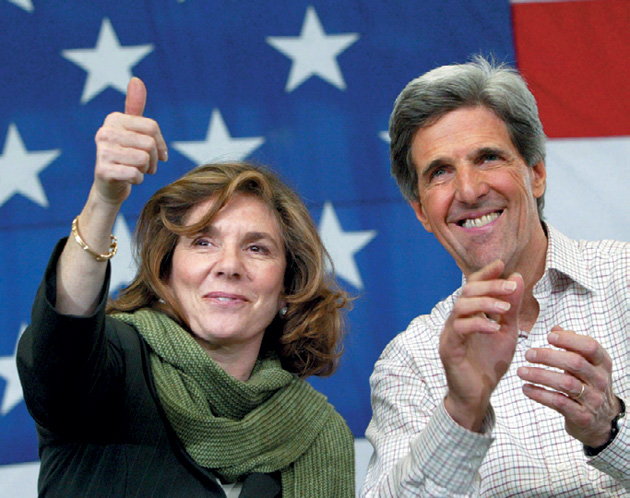
For months as the presidential campaign got under way, the pundits were predicting that John Kerry’s wife—the “loose cannon” who considered swearing a tension reliever, who made no bones about her Botox treatments and her prenuptial agreement—would prove a disaster. Some referred to the couple as “Cash and Kerry.” Legally, Heinz Kerry can’t contribute more than $2,000 to her husband’s campaign, but clearly her network of wealthy friends, including many moderate Republicans, has been an unexpected boost to the campaign treasury, and she says she would not hesitate to spend her own money to battle personal attacks against her or the family.
Political insiders were convinced that Heinz Kerry was too exotic, too uncontrollable, and too talkative. “You want a political spouse to cast an admiring gaze when the candidate is on the stump,” notes Nelson Warfield, a Republican campaign consultant who as Bob Dole’s press secretary learned something about powerful spouses.
Conventional wisdom was wrong. On the campaign trail, Heinz Kerry presents a compelling contrast to her husband. Standing nearly two heads below him, she is dark and sultry next to his wintry grayness. In battleground states like Florida, the formal Boston Brahmin looks as out of place as a New England pine in the Everglades; when Ter-RAY-zah speaks in fluent Spanish with a distinctive Portuguese lilt, she can bring audiences to tears. “I’m talking to all immigrants,” she tells a crowd in Bal Harbour, “the Portuguese, the Cubans, the Puerto Ricans, the people who came together to be Americans. That’s what I represent.” Her background may not be Latin American (she sees herself as “a daughter of Africa”), but her accent makes her “a tremendous asset for the campaign,” says Armando Gutierrez, a political consultant in Albuquerque. “The symbolic importance of the Spanish language cannot be overstated.”
The campaign’s plan has been to use Teresa to appeal to “new Americans,” though as it turns out, much of her time is consumed with fundraising. She has also pushed her husband to reach out to students; the “Kerry Campus Tour” was her idea.
At the University of Pittsburgh in April, 10,000 people packed the plaza, and the campaign staff marveled at what they called “an October crowd.” Echoing John F. Kennedy, Kerry introduced himself as “the guy who gets to accompany Teresa to Pittsburgh.” And indeed, it was Teresa’s remarks that brought the students to pin-drop silence.
“I grew up in a dictatorship in East Africa,” she began, as she often does. She painted a picture of an idyllic childhood, hanging upside down in guava trees and chasing her brother barefoot through the bush. Her father, a Portuguese oncologist, had come to Mozambique to practice medicine; he wanted her to become a doctor, but she feared she would never marry and have children if she did. She wishes now that she’d given it a try.
As a girl, she served as her father’s nurse when he saw patients on weekends in the bush. They would awaken in a cottage to a silent gathering of mothers crouched outside with their sick children. To this day, her view of that time and place is rosily nostalgic. “I learned that [even] if it had to be in a little rondavel”—a hut—”and I was caring for people, I would be supremely happy,” she has said. The Mozambique years also left her with a reverence for the environment and natural medicines; her most passionate causes now are preventive health care and “greening” the city of Pittsburgh.
In the late ’50s, Heinz Kerry told the students, she went to school in South Africa, where she marched against apartheid and saw activist friends go to jail. America, to her, was a noble place, home to the then newly created Peace Corps. “The face of America I saw from abroad was a face of can-do, generosity of spirit—the happy face of America,” she concluded. As she stepped back from the microphone, her husband leaned down to plant a kiss on her forehead. She shook it off. In private the couple is openly affectionate, but when he tries to embrace her in public, she often turns to the side and they bump noses.
Heinz Kerry handed the microphone to her son Chris, a 31-year-old investment banker and a political prospect in his own right. Then John Kerry stalked the stage like a Roman senator, sternly inveighing about tuition costs and stem cell research and troops under fire in Iraq. In the end, the Pitt students weren’t quite sure what his central message had been. But they loved his wife. “Mrs. Kerry was incredible,” said Will Minton, a junior. “You get the impression it’s more heartfelt, not scripted.”
WHEN WE MET for breakfast in April, Teresa Heinz Kerry asked the waiter for strong tea. She was still nursing a flu. She pulled the menu close to her nose and ordered Egg Beaters, then plunged into a dissection of the Bush/Cheney White House and her own alienation from the GOP. She was, she said, profoundly troubled by the slow death of the Republican Party “as I used to know it.” Conservatives didn’t like John Heinz, she added, because he was a moderate—the kind of fiscally prudent, socially liberal Republican who has since vanished from the political landscape. The election of the anti-abortion, anti-gay right-winger Rick Santorum to her late husband’s Senate seat drove her up the wall; she once dubbed him “Forrest Gump with an attitude.”
Asked whether she saw Bush in a similar light, she chose her words carefully. “I don’t think he understands, like his dad did, the role of the diplomat. He has diminished his own ability, and therefore ours as a country, to intervene with ideas and persuasion, not with swagger. I see people behind him who are more rigid.” She said she hoped that her husband could “bring us back into the fold of the world neighborhood and work particularly assiduously with those that have the most against us, to try at least to win their respect, if not their love.”
Teresa Heinz Kerry’s answers are discursive; ask her a question and you’d better be prepared for a 10-minute explanation. She may claim not to be involved in policy or advocacy, but she can’t help delving into the minutiae of issues, from outreach to Muslim women to the hazards of chemicals in plastics and cosmetics. John Kerry has not yet defined how he intends to include a prescription drug benefit in his health care plan, but his wife has seen her foundation’s plan, HOPE, adopted by the state of Massachusetts, and she is developing similar plans for several other states.
“All that stuff is way ahead of my husband,” she says, without apparent regard for whether that might sound like a put-down. Her foundation’s priorities on the environment, women’s health, and pension equity, she adds, “follow the work my late husband did.”
Powerful women, especially rich and pow-erful women in the public eye, are usually cast as stereotypes—Martha Stewart or Hillary Clinton, diva or political climber. Clinton found out how easily a spouse’s handling of money can be used to plant suspicions. Scaife, the Pittsburgh conservative who has funded the research group attacking Heinz Kerry’s charities, bankrolled investigations into the Clintons’ history in Arkan-sas, and some of the information ultimately found its way into the Whitewater inquiry.
But trying to cast Heinz Kerry as a wealthier Hillary is off the mark in many ways. On a superficial level, Hillary was often accused of “wearing the pants in the family,” while Teresa is flauntingly feminine. Unlike most women in their 60s, she refuses to chop her long hair short as if to follow some desexualizing code. People consistently remark on how sexy she is—no small feat for a woman who, at 65, is five years older than her second husband. And when asked what she would do if she caught her husband philandering, she pulls no more punches than Roxie Hart in Chicago, joking that she might maim him or reciprocate in kind.
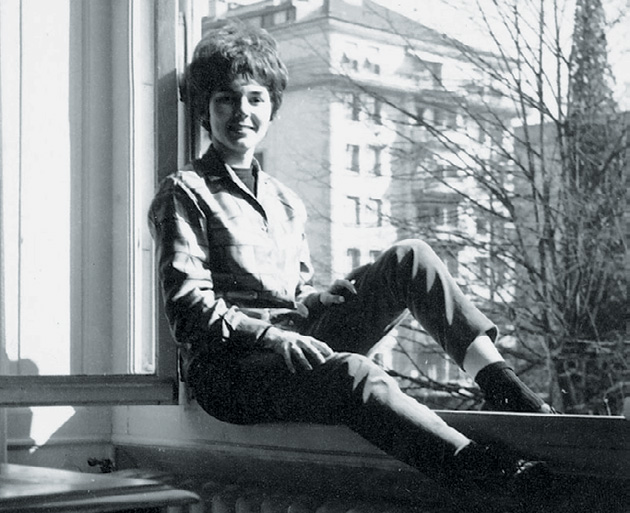
More important, Heinz Kerry carries none of the repressed political ambition that kept Hillary at a perpetual low boil. If she wanted political power, she could have filled the Senate seat vacated by her husband’s death or run for it when national Republicans urged her to in 1993. She declined, deciding that she could have more impact running the philanthropies. It drove her crazy, she says, that President Clinton appointed his wife to run his health care initiative. “If she’s going to be chief, she should go through the nomination process like any other secretary,” she says. “Secondly, I thought if this didn’t work out, he loses, she loses, and the issue loses.”
She told me that as first lady, she wouldn’t see herself as a shadow policymaker, but rather would “bring my husband practical answers so he can see what does work and what doesn’t. That’s one of the virtues of philanthropy—you can tweak it midcourse.”
The White House, she muses, “is, I understand, a lonely place. You have to be supportive—not phony supportive, but a good friend. That’s what I hope to be. It’s somebody who says, ‘You goofed this time, or you could have done it better,’ but [also] is an enabler.” Lately, she has been trying to “embrace the tiger” of political attack by surfing the web and reading what the likes of Rush Limbaugh have to say about her and her husband. It’s an exercise that used to upset her. “Now I just think, ‘Jackass,’ and I laugh.”

